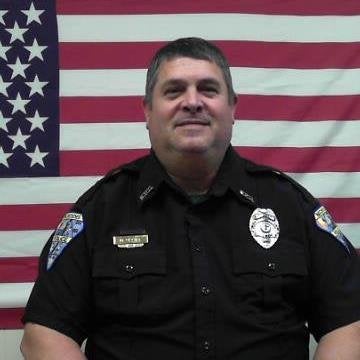Louisiana police officer dies from heat-related injury while patrolling the streets for several hours
Officer Brian Olliff, 52, died after radioing in for an ambulance to take him to a hospital after patrolling the streets in temperatures that reached into the high 90s

Your support helps us to tell the story
From reproductive rights to climate change to Big Tech, The Independent is on the ground when the story is developing. Whether it's investigating the financials of Elon Musk's pro-Trump PAC or producing our latest documentary, 'The A Word', which shines a light on the American women fighting for reproductive rights, we know how important it is to parse out the facts from the messaging.
At such a critical moment in US history, we need reporters on the ground. Your donation allows us to keep sending journalists to speak to both sides of the story.
The Independent is trusted by Americans across the entire political spectrum. And unlike many other quality news outlets, we choose not to lock Americans out of our reporting and analysis with paywalls. We believe quality journalism should be available to everyone, paid for by those who can afford it.
Your support makes all the difference.A funeral for a Louisiana officer who died as a result of last Saturday’s sizzling temperatures after working outside for several hours will be held, as more than 100 million Americans brace for what’s expected to be another sweltering weekend of intense heat.
Officer Brian Olliff, 52, died on Saturday evening after radioing in for an ambulance to escort him to the nearest hospital while he was patrolling the streets of the small city of Natchitoches, located about 20 miles northwest of Montgomery.
The 52-year-old “passed away Saturday evening from an unexpected heat-related medical event while working in the downtown district,” the Natchitoches Police Department reported.
“Knowing Officer Brian, he’s not the kind of person to just sit in a car,” said John Greely, a spokesman for the police department, to the New York Times. The officer began his shift at 11 that morning, and Mr Greely estimates that he went on to spend most of the next “six or seven hours” walking the streets, laden with his heavy uniform and gear on a day when the high reached 98 degrees.
“During his 20-year law enforcement career, at some point, he also served as a Natchitoches Parish Sheriff’s Deputy assigned to the NPSO Patrol Division,” the police department wrote in a statement notifying the public of the death of the 52-year-old, whose own son – Cody – also works with the force.

The officer’s death occurred as more than 100 million people from regions stretching across south-central US to the northeast were again warned that this weekend’s temperatures would reach dangerously high levels, tapping out above the triple-digit mark for some.
“A strengthening upper level ridge stretching from the Southwest to the East Coast will keep stifling heat in the forecast from the Desert Southwest to the Northeast this weekend,” the National Weather Service warned in a statement issued ahead of a “sizzling” weekend where daytime highs are expected to soar into the century mark across the southwest and into the mid-90s for highs in the Ohio Valley, Mid-Atlantic, and Northeast – the feel-like temperature will actually be closer to 100 for some of those regions.
“The heat wave finally crescendos on Sunday when the Northeast sees the return of oppressive humidity levels combined with upper 90s highs, resulting in record highs and >105 heat indices in parts of the Northeast and Mid-Atlantic,” the advisory added.
Heat-related deaths are likely to become a more common event, as climate change leads to more extreme weather patterns with temperatures blasting through records previously unheard of in most regions.

Last summer, during a heat wave in the northwest, about 600 additional people were reported to have died over a week in Oregon and Washington and according to the National Weather service, heat has been the single largest contributor to weather related deaths over the last 30 years while the Centers for Disease Control and Prevention estimates that about 600 people across the country die from a heat-related illness each year.
Vulnerable populations – such as new-borns, elderly people, children, people who are pregnant or have chronic health conditions – and people with pre-existing conditions – such as heart disease and diabetes – are at particular risk for heat stroke or heat-related death during scorching temperatures.
The National Weather Service advises people to be on the lookout for tell-tale signs of heat exhaustion, which include nausea, dizziness, thirst, weakness and heavy sweating, as this illness can quickly advance to heat stroke which can lead to death or permanent injury if not treated immediately.



Join our commenting forum
Join thought-provoking conversations, follow other Independent readers and see their replies
Comments